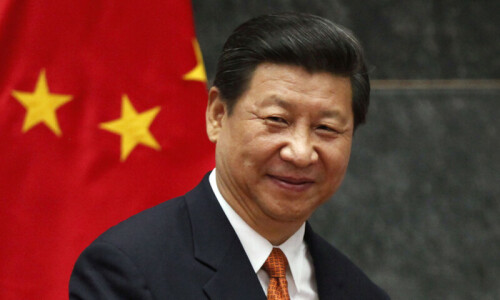According to a recent liquefied natural gas (LNG) report (2020-21) published by the State Bank of Pakistan, Pakistan has a 15-year take-or-pay contract with Qatar as well as some private suppliers in Italy.
This contractual purchase makes up 87 per cent of Pakistan’s LNG imports while the remaining 13pc are spot purchases. Hence, Pakistan is bound to purchase 87pc due to the contract or else pay the penalty; the government can find good deals for the remaining 13pc only.
According to the Ministry of Energy and the Oil & Gas Regulatory Authority projections, Pakistan’s natural gas supply will only meet 22.3pc of market demand by 2030. The import of LNG has managed to decrease the country’s overall power generation costs by approximately Rs234 billion between 2016-17 and 2019-20.
Amid the Russian-Ukraine war, Europe has planned to ban Russian oil and gas. Banning Russian petroleum means the supply of LNG in the EU, the UK and the US became restricted. This isn’t the first time the term “energy security” has been tossed around.
Keeping global politics in view, we need to consider multiple options to prepare for higher gas prices in winter as well as negotiate long-term contracts
In 2004, Russia invaded Georgia. Then again in 2014, Russia invaded and annexed the Ukrainian territory of Crimea. The idea of banning cheap Russian petro products was tabled but was not acted upon. Possibly, the price of Russian energy supplies was considered too competitive for them to act upon the scope of energy security then. But not this time because Russia entered Europe’s backyard.
In response to rising demand, Qatar recently announced plans to raise its LNG generation capacity by 64pc by 2024 in order to capitalise on newly found gas supplies. Other natural gas producing countries, notably Canada, Mozambique, and other West African countries, also have declared similar development ambitions.
It seems the magnitude of potential LNG consumption will keep rising in the relatively close to near term (assuming natural gas production volumes and price policies stay stable). So far this year, Europe’s import volumes have increased by about 50pc compared to the same period last year, with no signs of a steady decline. Germany and the Netherlands are speeding up the development of floating import docks, with the first ones expected to open within the next six months.
Once LNG was a cheap alternative source of power for Pakistan. But now, given the EU’s, UK’s and USA’s newfound love for LNG compared to cheap Russian petro products, it is no longer the case. Recently, for continuous power supply during the Eid holidays, the state spent roughly $100 million for a single LNG cargo from the spot market.
“The government is considering using Residual Fuel Oil (RFO)-based and coal-based power generation as alternatives,” said Syed Zakria Ali Shah, Joint Secretary and focal person to the Ministry of Energy (Petroleum Division). “Some developments have taken place regarding importing coal from Afghanistan and the Cabinet has also given approvals recently.”
Among alternate options, Pakistan is in talks with Iran to import gas. The EU is also considering purchasing gas from Iran instead of Russia, making Iran a viable option for Pakistan.
Keeping the political and global implications aside, if Europe becomes an importer of Iranian Gas, its price will see a drastic increase. Hence, Pakistan should seek to enter a contract for a longer duration (ie 5-10 years) for the import of gas from Iran and strategically play its cards keeping in view the geopolitics.
“LNG is only going to get more expensive, but that’s largely in the spot market,” said Ammar Habib Khan, Chief Risk Officer at Karandaaz Pakistan. “We should try to get as many long-term contracts we can, they are still in the range of 11-13pc of crude price.”
Renewable energy, though the talk of the town, has always had a problem with its unpredictability. Only when enough sunlight is available, or when the wind blows hard enough to move turbine blades, can power be generated.
The technology for storing energy generated by renewable energy has developed over the years. This has been fueled by the rapid expansion of mostly wind and solar producing capacity, which has driven renewable energy prices down to the point where they are now competitive with coal and natural gas, making them viable options for utilities.
In the short run, Pakistan has no other choice but to bear inflation. However, we need to plan ahead for winter as well, as demand for gas increases in winter due to higher heating requirements in the EU and the US, thereby resulting in increased prices. Summers is generally a slow season, but not this year. We need to plan in advance for the winter, and for the next 5 years.
Published in Dawn, The Business and Finance Weekly, July 13th, 2022
















































